Why Do Some Cats Sleep With Their Eyes Open? (Answered)
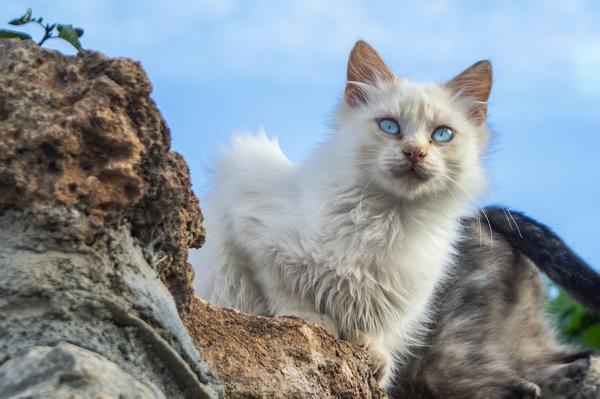
Why on earth would a cat sleep with its eyes open?
It's like trying to solve a riddle with no answer 😕.
You know that feeling of curiosity consuming you, leaving you scratching your head in disbelief?
Well, buckle up, my friend, because we're about to embark on an eye-opening journey together.
Let's dive in and uncover the truth, shall we?
The Evolutionary Advantage of Open-Eyed Sleep in Cats
Cats sleep with their eyes open as a survival instinct. It allows them to stay aware of their surroundings and spot potential threats. This unique ability allows them to be relaxed yet alert, giving them an evolutionary advantage in conserving energy and detecting predators.
Cats, my friends, are intriguing creatures.
They have this strange habit of sleeping with their eyes open.
It's like they're in a dream, but remain alert and ready for anything.
Why do cats do it?
Well, open-eyed sleep is rooted in survival instincts.
For example:
Cats need to stay aware of their surroundings even when they're catching some Zs.
By keeping their eyes open, they can easily spot potential threats approaching. Clever, right?
But here's the kicker:
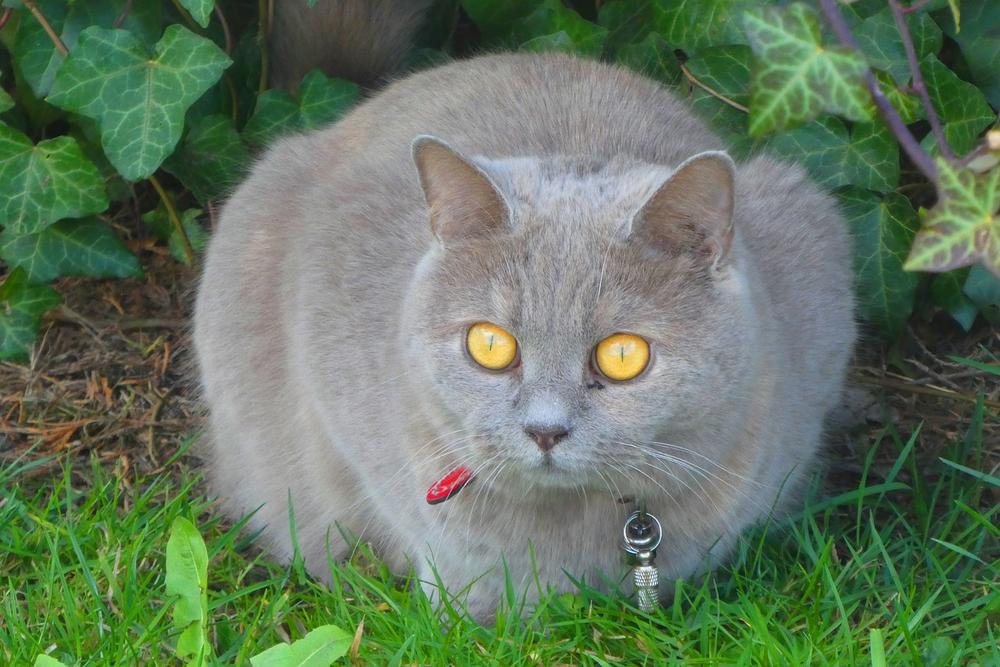
By sleeping with open eyes, cats can be both relaxed and alert.
Seems contradictory, doesn't it?
But these feline geniuses have mastered the art of being calm while remaining vigilant.
And it gets even better:
Cats, dear readers, have evolved to sleep up to 18 hours a day.
That gives them plenty of time to recharge while conserving energy.
Talk about an evolutionary advantage!
They also prefer high perched sleeping spots.
Can you blame them?
From up there, they can keep an eye (or two) on their surroundings and detect any lurking predators.
So, next time you see your cat napping with open eyes, remember - it's nature's way of ensuring they live their best lives while staying one step ahead.
Main points I'll expand upon further down this article:
- Cats sleep with their eyes open to protect their cornea.
- Sleeping with eyes open allows cats to monitor their surroundings.
- Cats can easily awaken if they sense something while sleeping.
- Sufficient sleep is important for cats' overall health and well-being.
- Cats go through different sleep phases, including Slow-Wave Sleep (SWS) and Rapid Eye Movement Sleep (REM).
- Consistent sleeping schedules and rest after playtime promote organized sleep.
- Cats need a safe and secure resting environment, including engaging in playtime before bedtime.
- Different sleeping positions have significance for cats based on their needs.
- Common myths and misconceptions about cats' open-eyed sleep should be debunked.
- Potential health issues related to cats sleeping with their eyes open should be monitored and assessed by a veterinarian.
Understanding the Physiology of Cats' Eyes During Sleep
Have you ever caught your cat sleeping with its eyes open and wondered why?
Turns out, cats have a unique ability that us humans don't possess.
You see, cats have this thing called the nictitating membrane.
It's like an extra protective eyelid that shields their eyes from anything that could irritate them or harm their vision.
So when they're lounging around with their eyes open, this incredible membrane partially covers their eyes.
Now, let me ask you:
Why do cats choose to sleep with their eyes wide open?
Well, one reason is that cats are always on high alert.
They're incredibly vigilant creatures. By keeping their eyes open while snoozing, they can stay aware of any potential threats or changes in their surroundings.
It's their way of making sure nothing sketchy is going on.
Not only does sleeping with their eyes open help them be more alert, but it also allows them to wake up quickly if they sense something isn't right.
In the wild, this instinct is crucial for survival. It's like having their finger on the snooze button, ready to jolt awake at a moment's notice.
And just like us, cats need their beauty rest.
Adequate sleep is vital for their well-being.
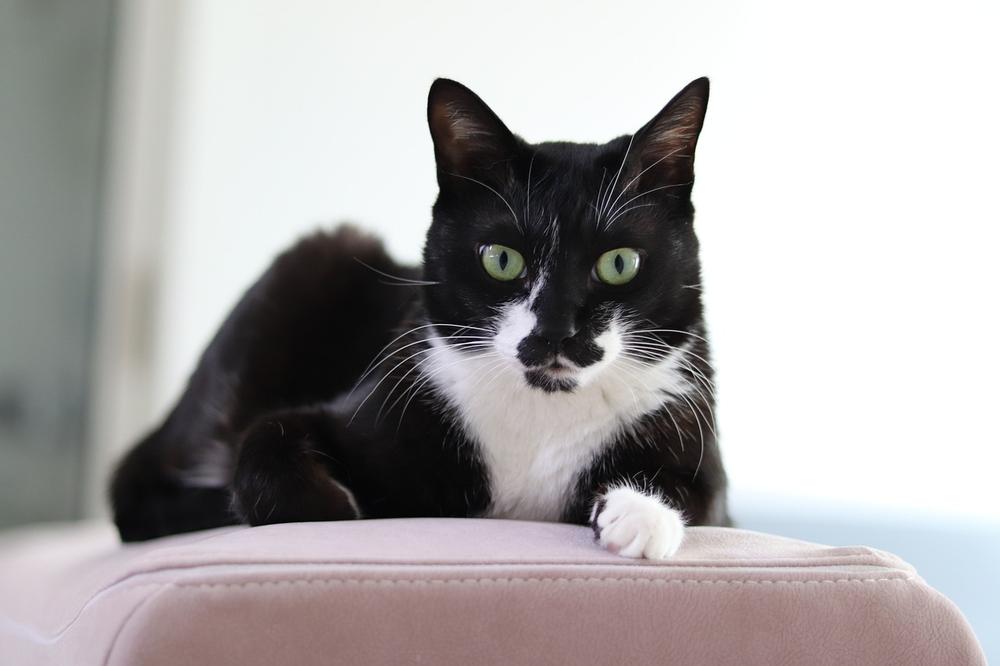
Sleeping with their eyes open, especially during lighter sleep phases like Slow-Wave Sleep (SWS) and Rapid Eye Movement Sleep (REM), ensures they get the quality sleep they need.
To support healthy sleep patterns for your furry friends, make sure to maintain a consistent sleeping schedule for them and give them plenty of downtime after playtime sessions.
This will encourage good sleep habits and keep them feeling their best.
Now let's talk about different sleeping positions.
Did you know that how your cat sleeps can reflect its social tendencies and desire for warmth?
For example, if your cat falls asleep with a blep (tongue sticking out), it's actually collecting pheromones.
And when cats curl up, it helps them retain body heat.
Exposing their bellies while sleeping means they feel safe and unthreatened.
Sleeping on their side gives them easy escape options, while the Superman position protects their delicate belly.
And sometimes, you may notice your cat using its paws to cover its face while snoozing. It's like having their own cozy little cat cave.
So there you have it – the reasons why cats sleep with their eyes open.
They're just being vigilant, making sure everything is in order, and getting the quality sleep they need to thrive.
But what about the common misconceptions surrounding cats sleeping with their eyes open?
Are they truly awake or just pretending?
Let me debunk these myths for you and shed light on the fascinating truth behind this behavior.
You'll be surprised by what you discover!
Common Myths and Misconceptions About Cats' Open-Eyed Sleep
Here's the section with the requested changes:
- Cats sleeping with their eyes open is normal. Even though their eyes are open, they still get enough rest during different sleep stages.
- When cats stick out their tongues while asleep, it's called a "blep," and it's completely normal. It's just their way of showing relaxation or contentment.
- Cats find it cozy to sleep under covers because it keeps them warm. They feel secure and surrounded by warmth.
- Some cats sleep with one eye open to seek attention from their owners. This way, they're ready to play or greet you if you wake up.
- How cats sleep reveals a lot. Those who sleep in a loaf position conserve body heat and can quickly react when needed. On the other hand, those at your feet want warmth, security, and an easy escape route.
So, next time you catch your cat sleeping with its eyes open, don't freak out... 😺
It's just part of their normal behavior as long as everything else seems fine.
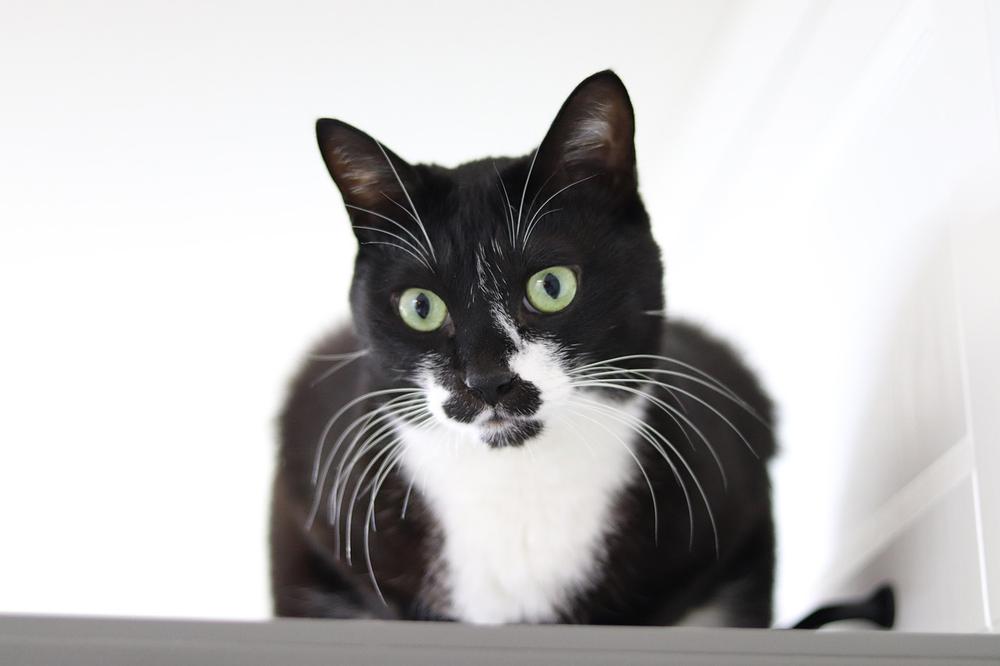
And it gets worse...
Cats who frequently sleep with their eyes open may develop dry eye syndrome and potential eye injuries.
But what other health issues could this behavior indicate?
Keep reading to find out the potential medical problems related to cats sleeping with their eyes open...
Potential Health Issues Related to Cats' Open-Eyed Sleep
Cats sleeping with their eyes open can cause health problems.
Here's what you need to know:
- Not producing enough tears or having poor tear quality can lead to dry eye syndrome, making your cat uncomfortable and potentially damaging their cornea.
- If your cat sleeps with their eyes open, it could be a symptom of an underlying disease like an infection or allergies. A veterinarian should check them out.
- Open-eyed sleep might also indicate eye injuries, weak muscles, or even twitching and seizures.
- Factors in their environment can disrupt their sleep patterns, causing them to find quiet areas or even sleep in the litter box.
- To help maintain regular sleep patterns, provide your cat with a cozy bed separate from their litter box and feed them before bedtime.
- As cats get older, they're more likely to sleep with their eyes open. It's a way for them to bond with you and form connections with other pets.
- The soothing purring sound during sleep contributes to your cat's overall well-being.
Knowing about these potential health issues will help you take better care of your cat.
In addition to the potential health issues discussed above, one interesting phenomenon that you may come across is your cat's tendency to sleep in their litter box.
This behavior can be puzzling and may leave you wondering why they choose this unusual spot.
Understanding why your cat exhibits this behavior requires some insight, which I have detailed in my blog post titled Cat Sleeping Next to a Litter Box.
Jump into my article to uncover the reasons behind this habit and gain a deeper understanding of your feline friend's behavior.
The Role of Predatory Instincts in Cats' Open-Eyed Sleep
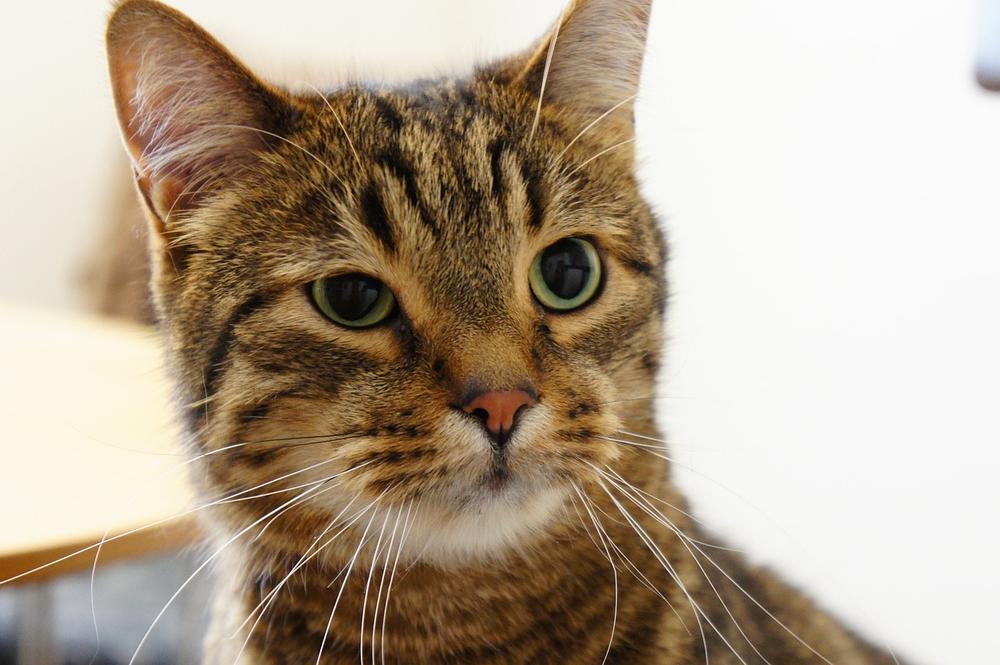
Cats sleep with their eyes open—an intriguing behavior, wouldn't you agree?
- You might not know this, but cats have a special eye structure called the "nictitating membrane" that lets them keep their eyes open even while they snooze. It acts like a protective shield.
- This astonishing ability is directly tied to their hunting instincts. By keeping one eye open, they can stay aware of what's happening around them and be ready to attack or escape if needed.
- What's more incredible is that cats can actually sleep with both eyes open! They can recharge their energy while still staying alert for any signs of trouble.
- During open-eyed sleep, sensory input is vital to a cat's behavior. They can sense even the smallest movements or sounds, helping them stay on high alert.
- The depth of open-eyed sleep varies from cat to cat. Some are light sleepers who can wake up easily, while others enter a deeper slumber yet remain vigilant.
So the next time you catch your kitty napping with wide-open eyes, just remember that it's their natural instincts in action—a reminder of their hunting nature and constant state of readiness.
And that wraps up today's article.
If you wish to read more of my useful articles, I recommend you check out some of these: Why Does My Cat Meow When I Pick Her Up, Do Cats Remember Their Owners, Are Black Cats Smarter Than Other Cats, Are Cats Scared of the Dark, and Is Purring Involuntary in Cats
Talk soon,
-Sarah Davis